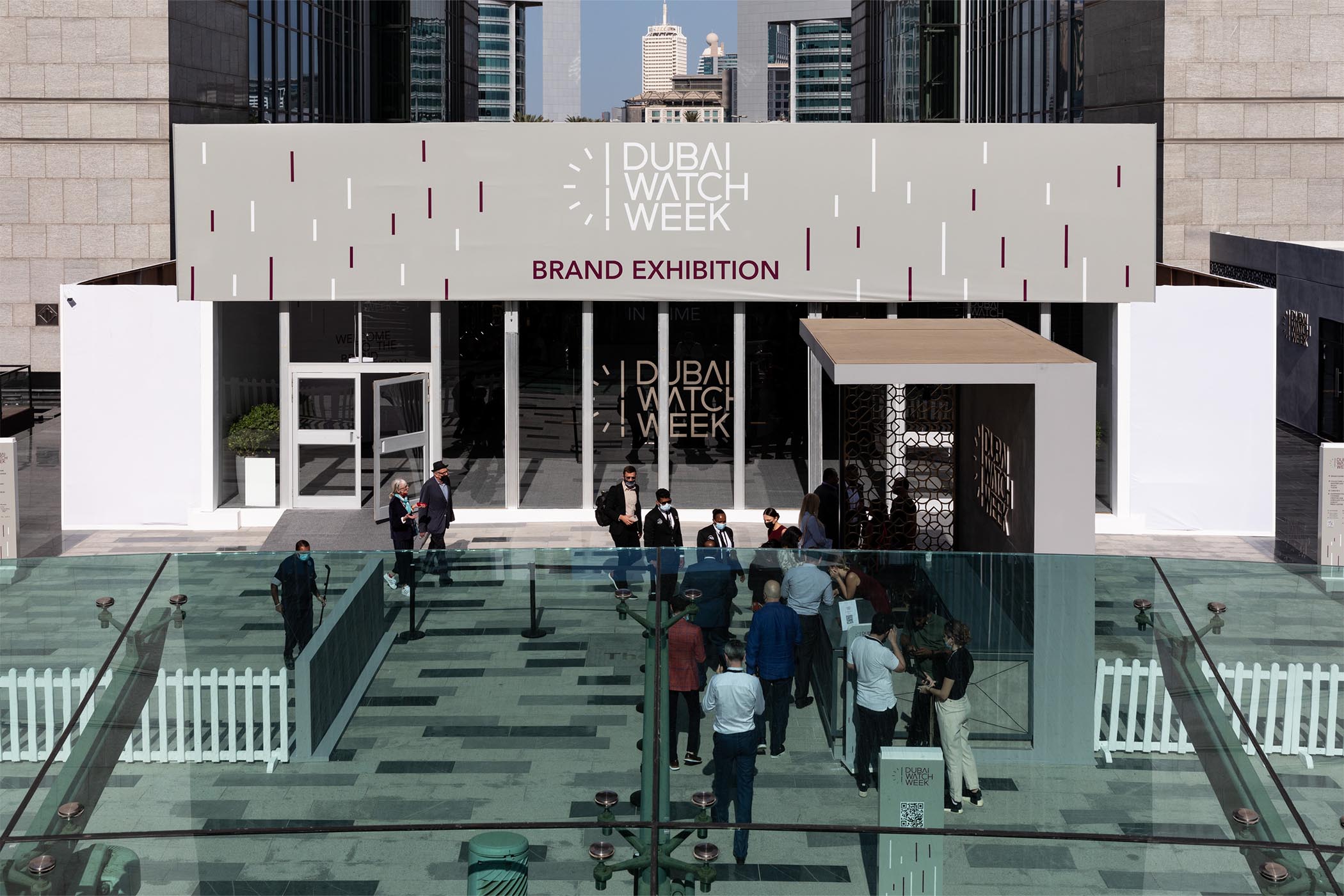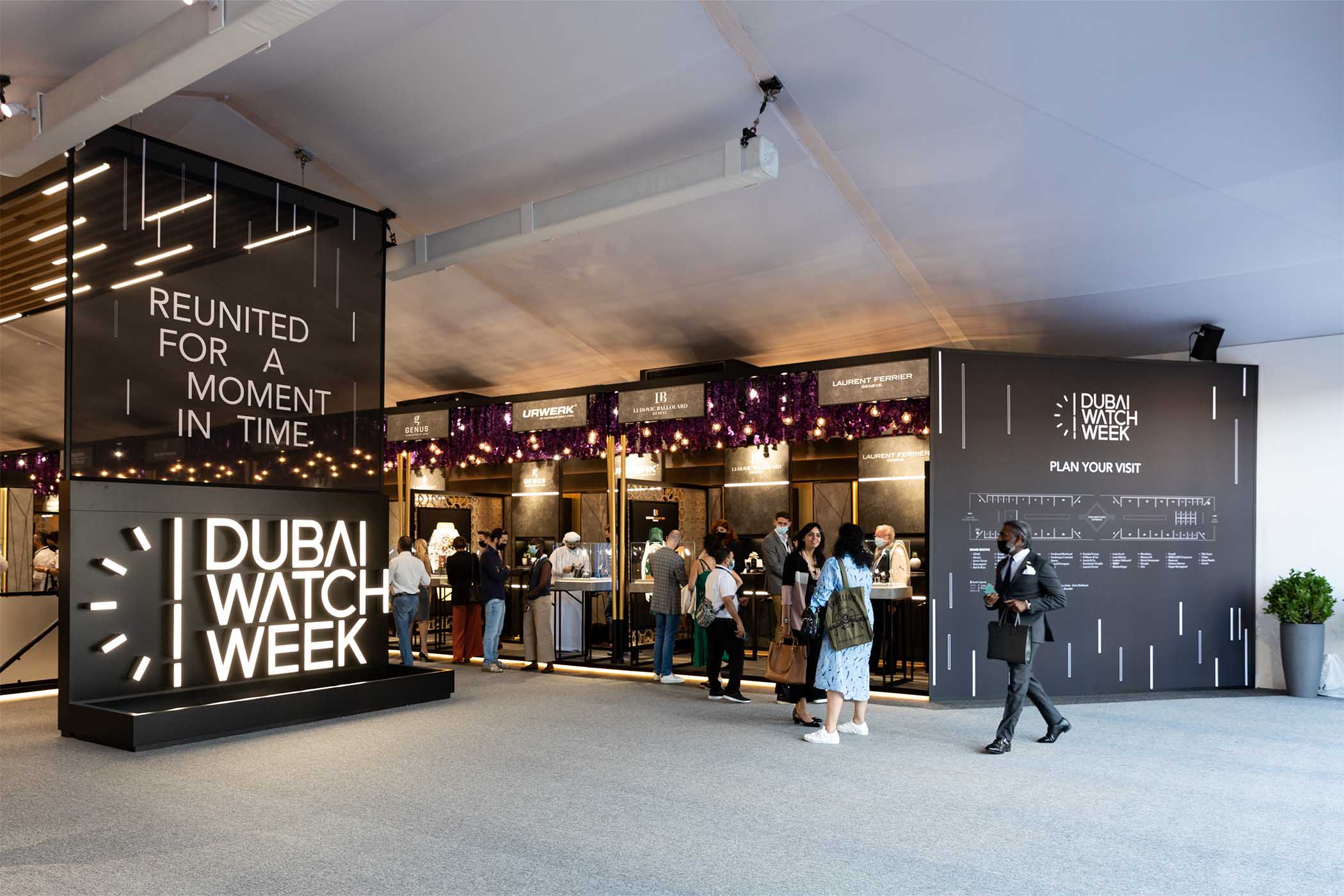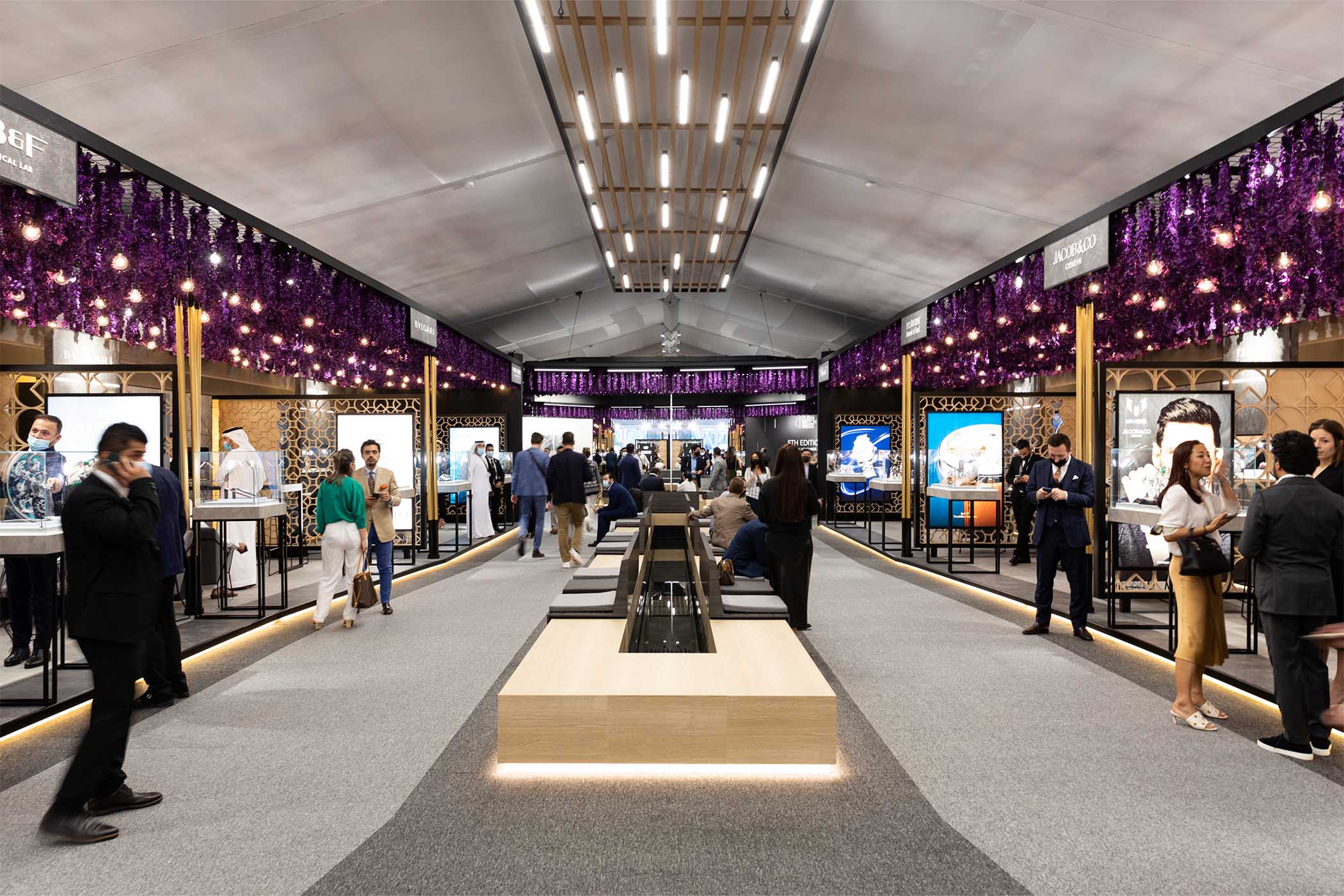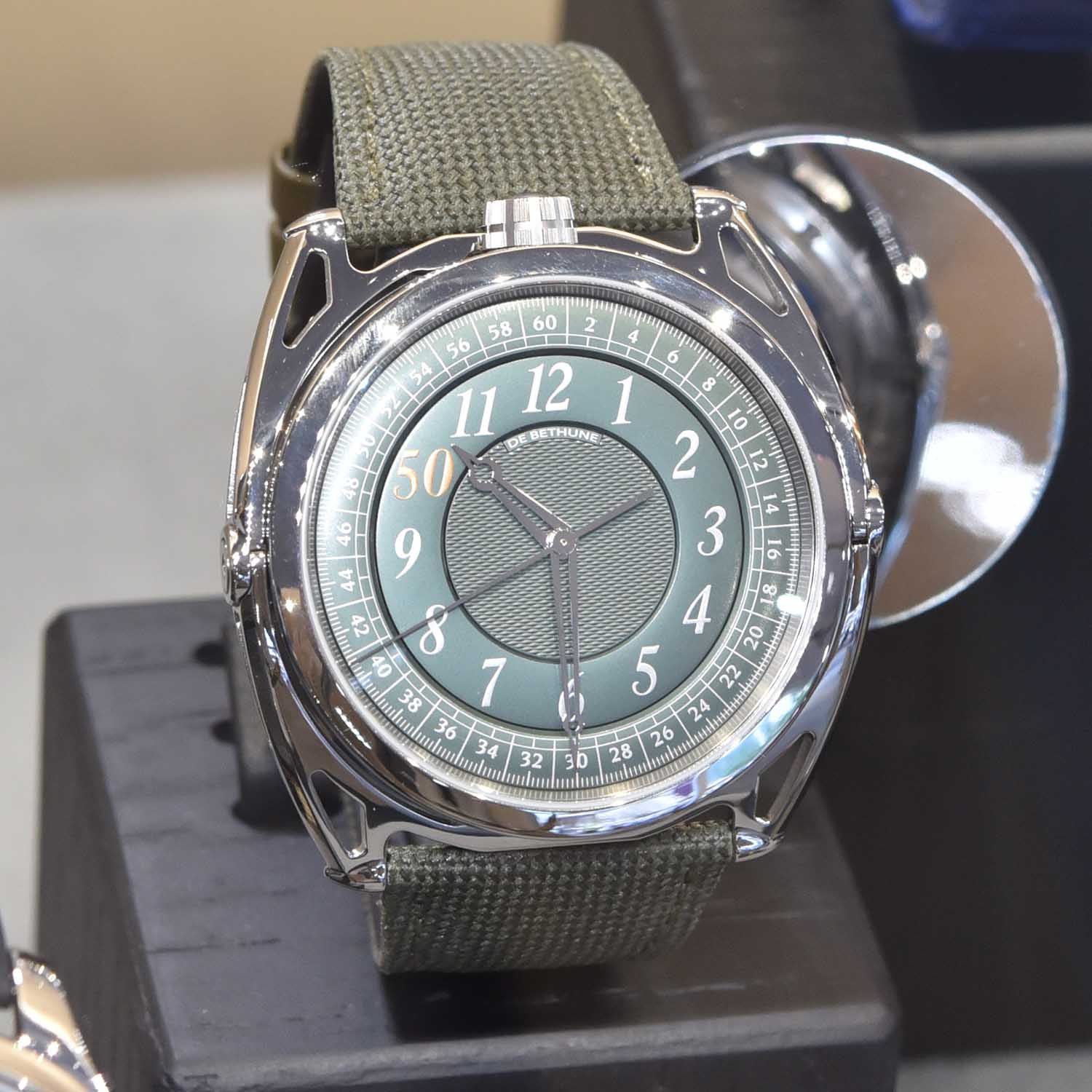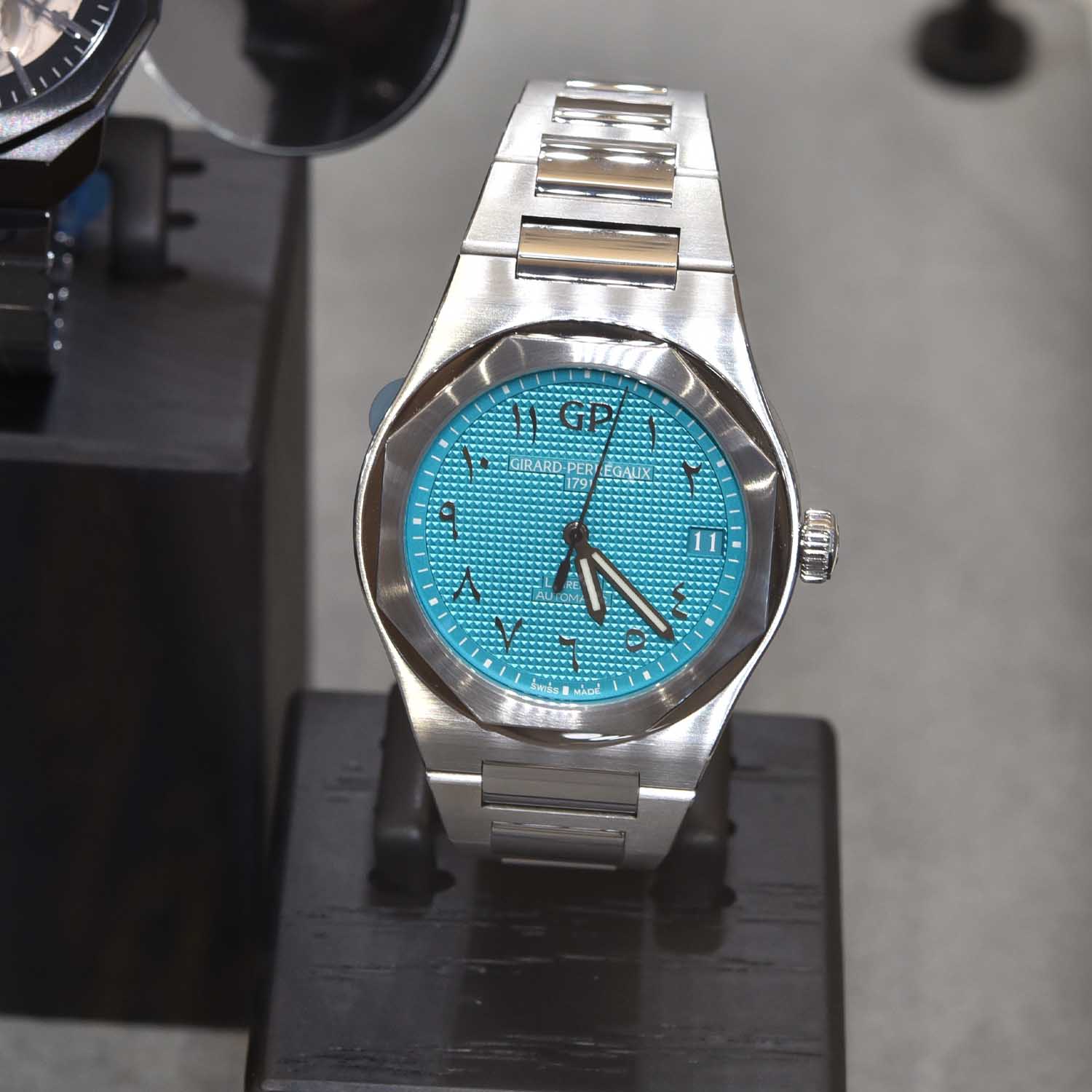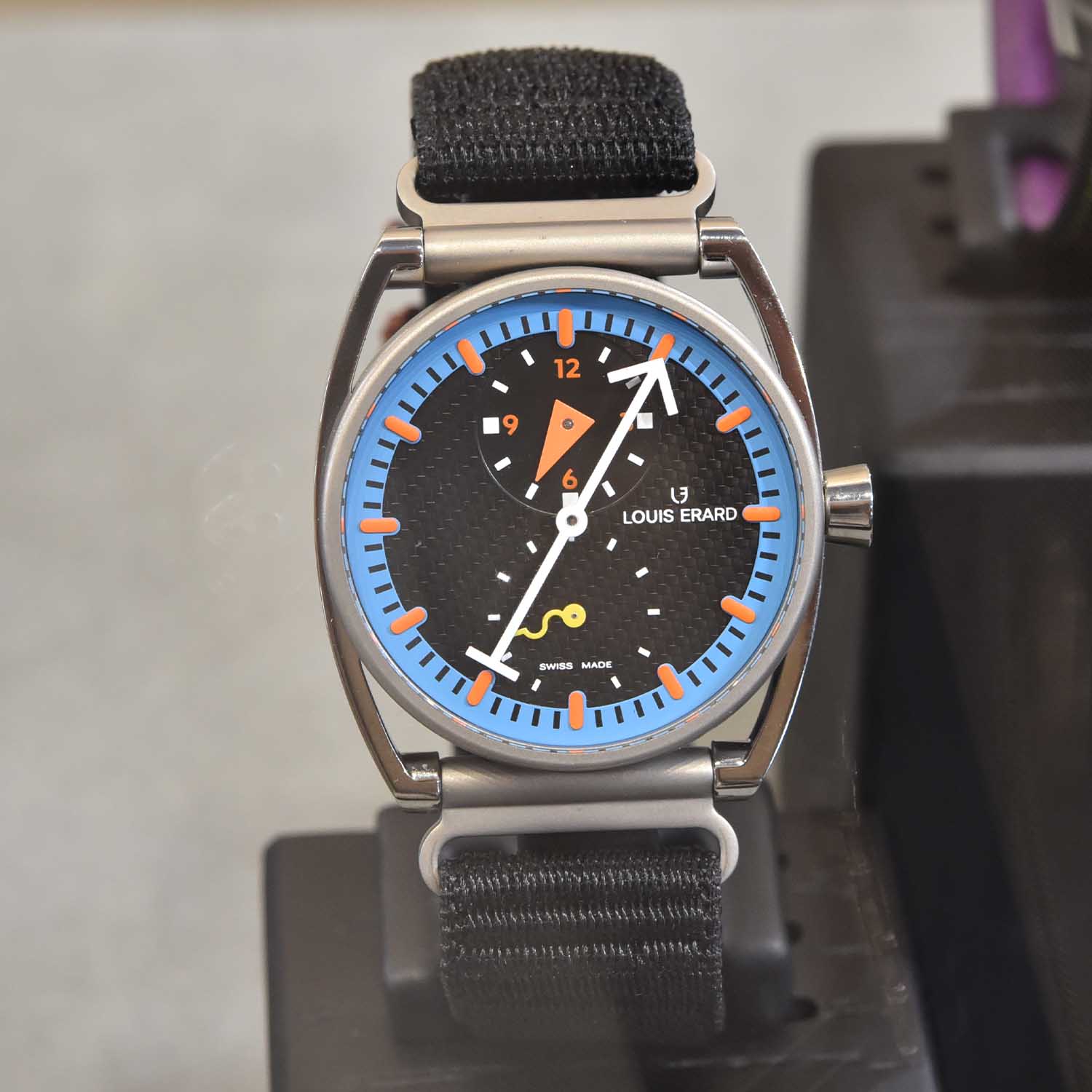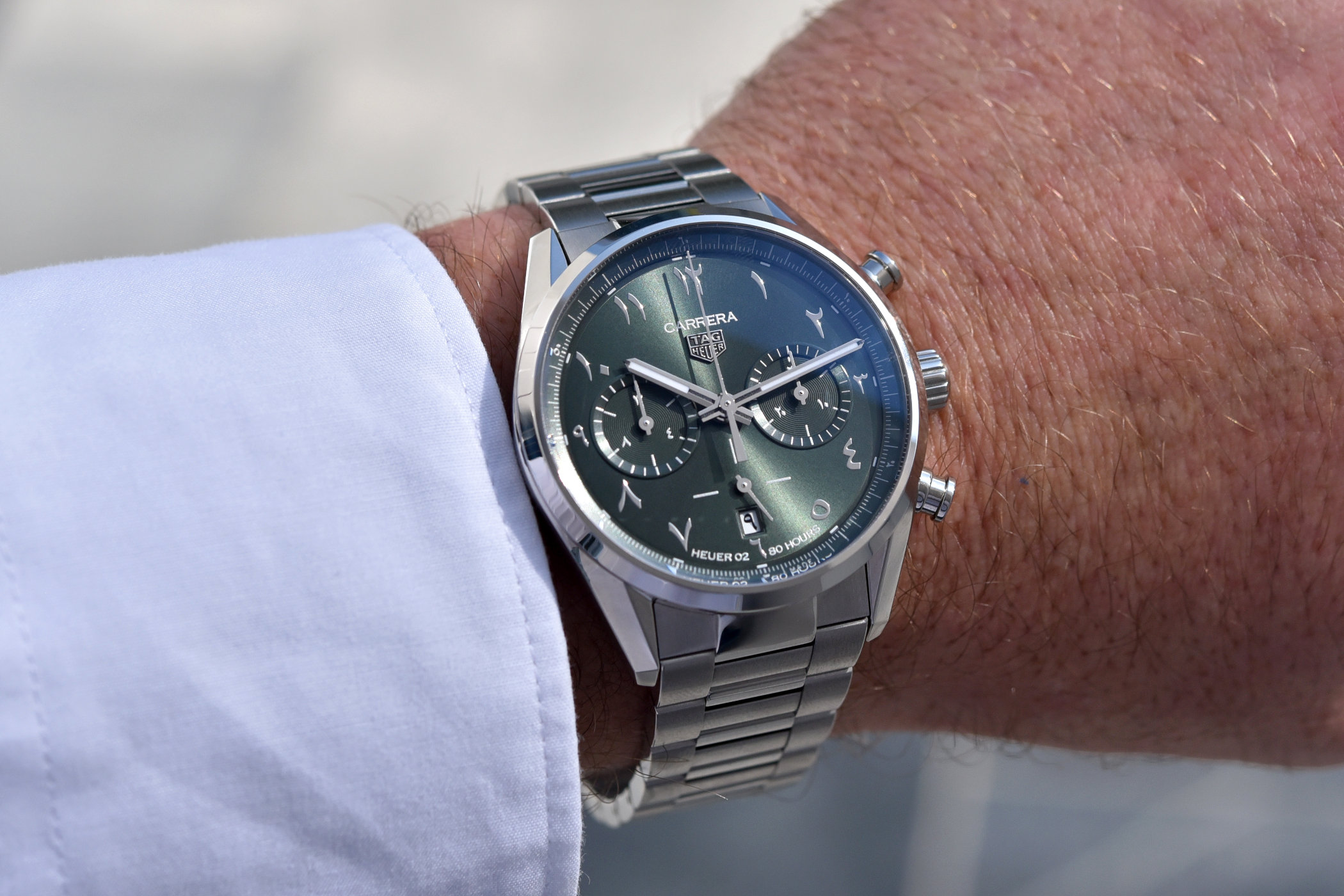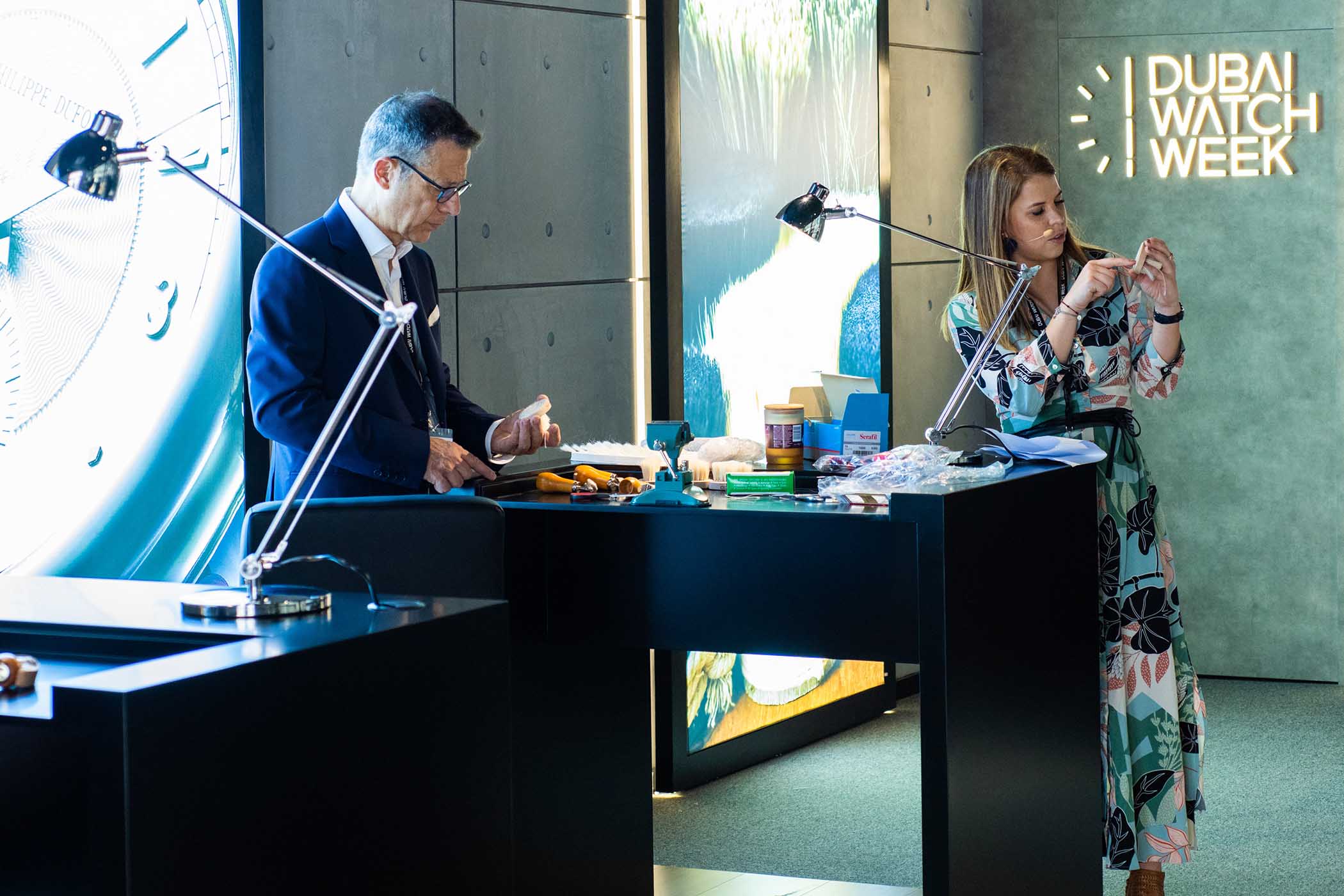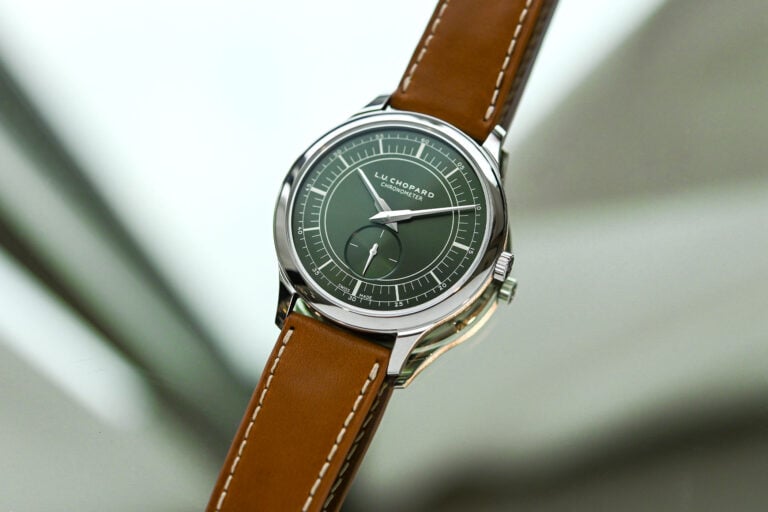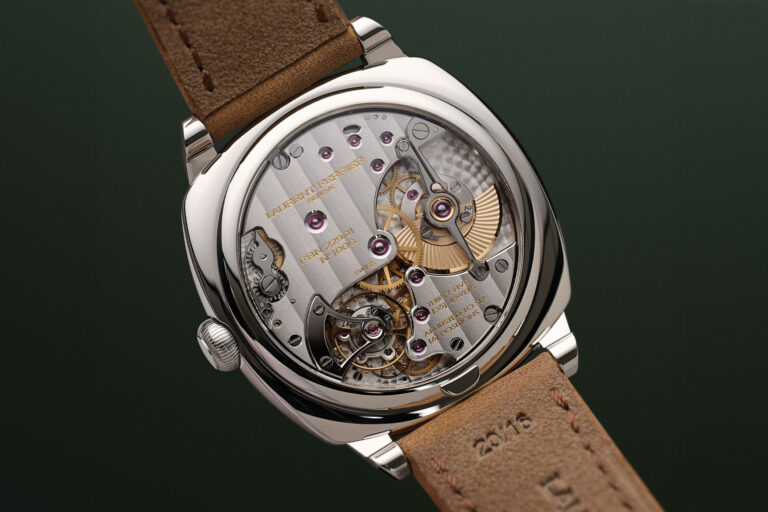Hind Seddiqi, Director General of Dubai Watch Week, Chief Marketing & Communications Officer at Seddiqi Holding
Talking with the woman in charge of one of the fastest-growing watch events.
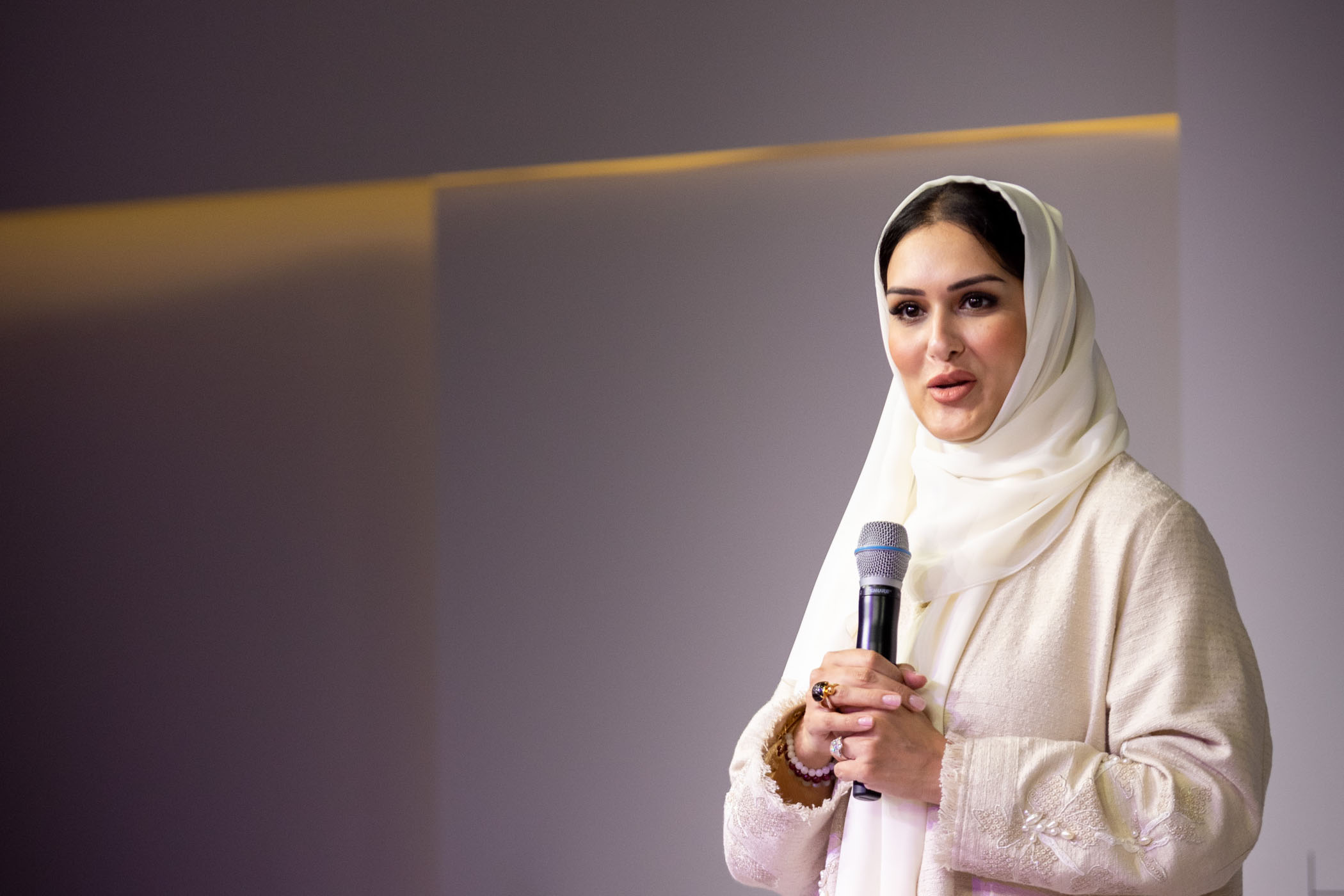
During Dubai Watch Week, we interviewed Hind Abdul Hamied Seddiqi, Director General of the event and Chief Marketing & Communications Officer of Seddiqi Holding. A key event in the region and the global watch calendar, Dubai Watch Week held its fifth edition from 24 -28 November 2021. Like previous editions, it was held at the Gate in the heart of Dubai’s financial district with over 45 watch brands exhibiting under the umbrella “Reunited for a Moment in Time.” The Dubai Watch Week is an initiative of Ahmed Seddiqi & Sons, one of the leading watch retailers in the Middle East (and globally), with a portfolio of over 50 luxury watch and jewellery brands across over 70 locations in the UAE.
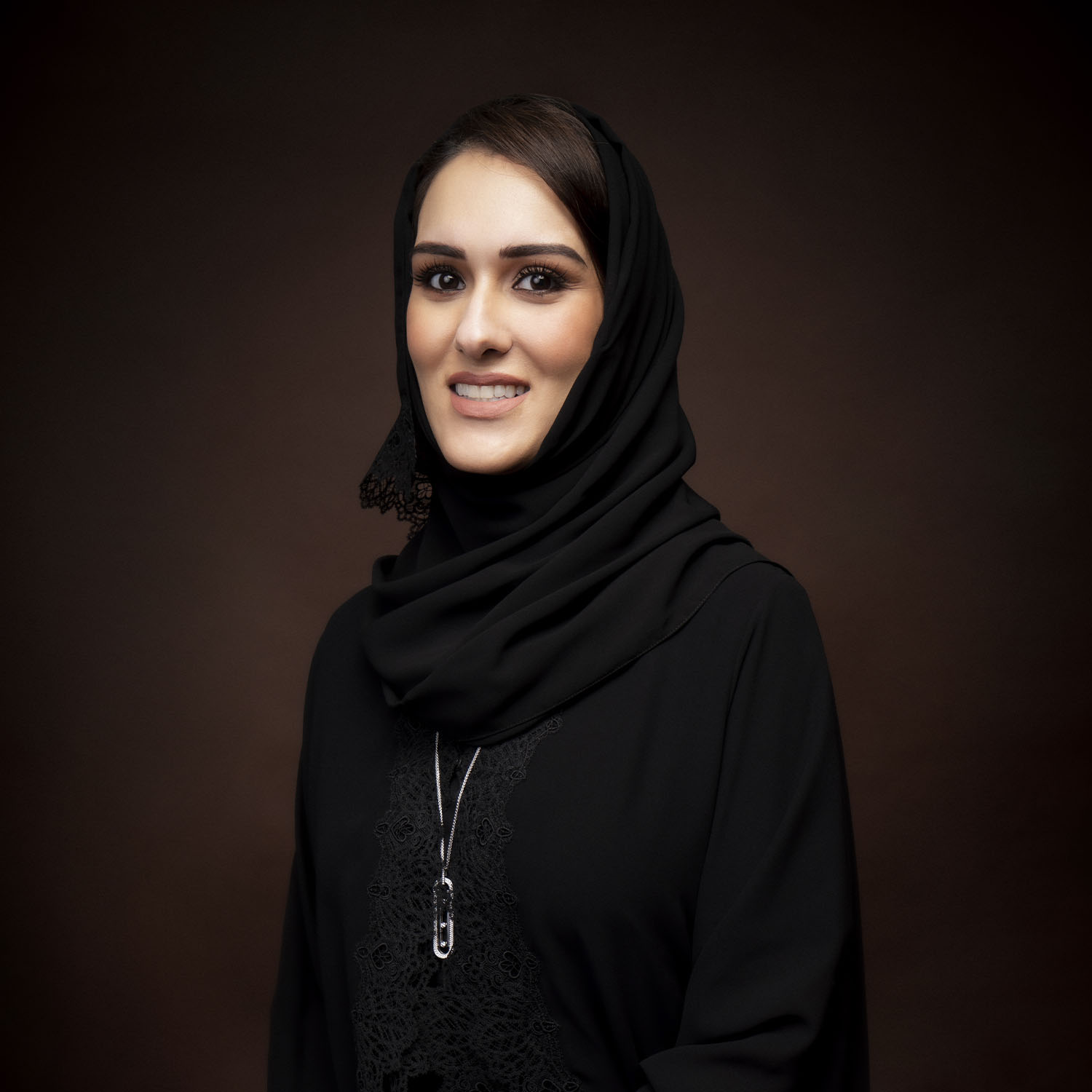
Xavier Markl, MONOCHROME – Thanks for having us for this spectacular fifth edition of the Dubai Watch Week. Can you tell us about the origins of the event and how you envisioned it?
Hind Abdul Hamied Seddiqi – It all started when we hosted the GPHG (Grand Prix d’Horlogerie de Genève) in 2014. It was the first time that the tour stopped in Dubai to showcase the watches competing in the different categories. Following the event, my father told our chairman to be ready to welcome the GPHG again in 2015. With that mandate in mind, I thought that we could do more than simply exhibit the GPHG watches. The collectors were very interested, but they had many questions. What is the story behind this watch? Who made this watch?
We’ve been travelling to the leading watch fairs in Switzerland – to SIHH and Baselworld – for many years. The experience we gain as a retailer is very special. We meet with people from the industry; we sit down and chat with CEOs and watchmakers and hear directly from them. This kind of access was not available to the press or collectors back then.
From 2012 onwards, we started bringing clients from the UAE to Geneva to meet the makers, the people behind the brands and show them how the watches are made. We realised that it transformed their perception of watchmaking, nurturing their passion for the craft.
As a family, we have always been very passionate about watchmaking, and we wanted to share our passion. Naturally, we could not take the world to Geneva but thought, “why not bring a part of our experience with the watch industry to Dubai?” And that’s how the idea came about.
Given our close ties to the watch industry and the constant flow of information, we thought that an exchange platform was a good place to start. And that’s how we created the Horology Forum, where industry leaders and watchmakers are united under the same roof to discuss topics of importance. That was back in 2015. And it was really impactful. The room was very small; we had about 30 seats. Today, we can seat 100 people, and we are always fully booked.
We also created the Master Classes, where we invite watchmakers and artisans to showcase their work. By offering a hands-on experience, people can experience what the human hand and brain can create. So the Horology Forum, the Master Classes and the Creative Hub are the three pillars of Dubai Watch Week that you’ll see in every edition.
And naturally, there is the brand exhibition. In 2015, we started with independent watch brands. The theme was ‘Rebels of Horology’ and we had independent brands like MB&F, Urwerk, Bovet, De Bethune, Greubel Forsey… Today we have forty-five brands. By 2017, we realised that the event was expanding enormously, and since Seddiqi is organizing and funding, we decided to celebrate Dubai Watch Week every other year.
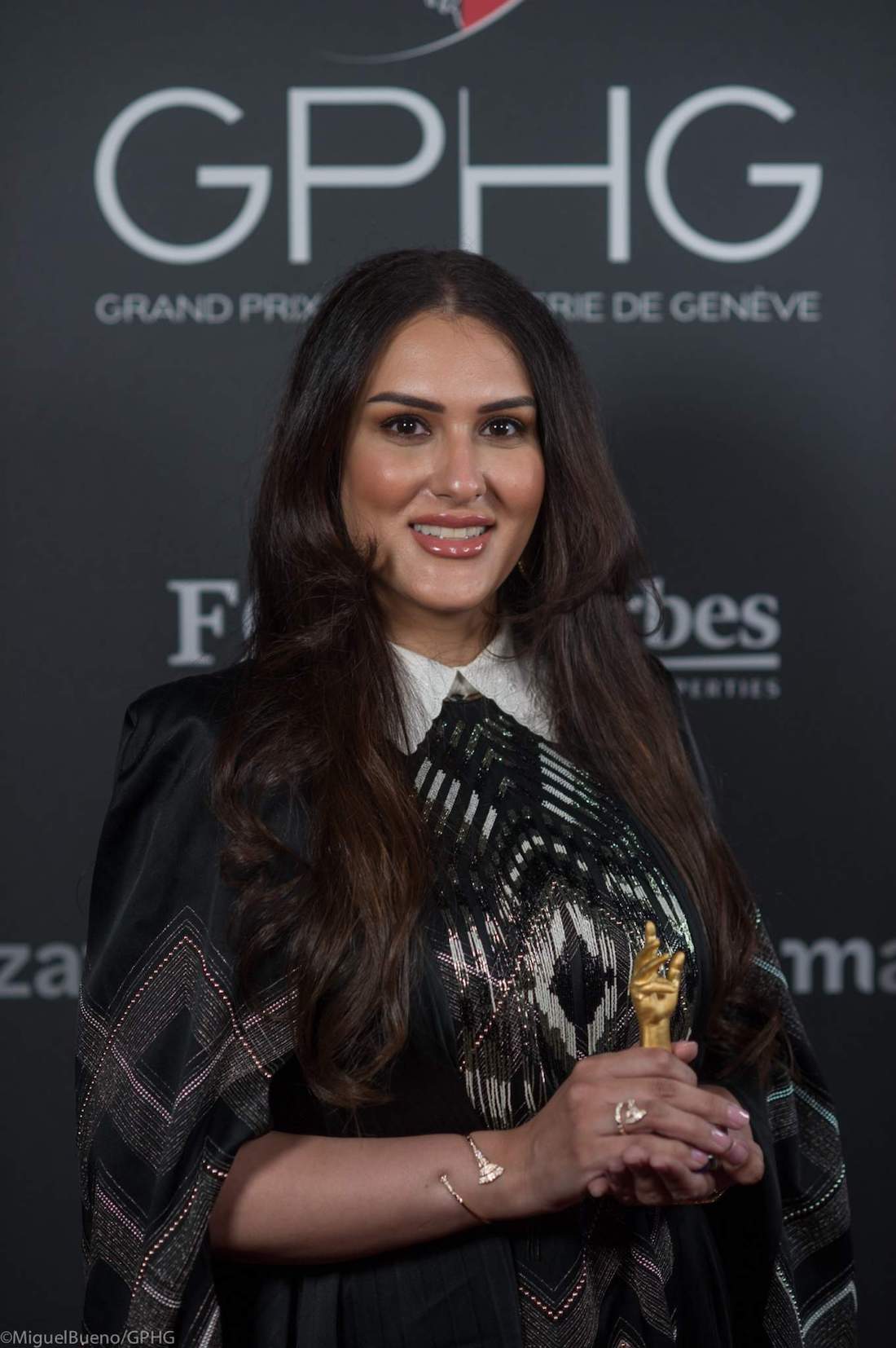
However, the Horology Forum takes place every year. It was held in London in 2018. There are exceptional British watchmakers, and we thought that they deserve more visibility. In 2020, in light of the pandemic, we had to go digital with the World Forum. We still have to decide where we will organise the 2022 forum, and there might be a twist.
What were the main novelties for this 2021 edition in Dubai?
We always ask for and gather a lot of feedback after the event. Feedback from collectors revealed that they were interested in having a dedicated area where they could sit, meet and delve into specific topics. That’s how we created the Collector’s Lounge. This is also where we are showcasing the Ahmed Seddiqi & Sons collection that we created to celebrate the 50th anniversary of the UAE.
What is the concept of this collection?
This is a collection of limited-edition watches we have created with over 30 brands. We have often commissioned UAE editions, but this 50th anniversary is a very special and meaningful celebration. We wanted to present a collection of watches with different price ranges, ranging from entry-level brands like Victorinox and Furlan Marri to high-end brands like De Bethune or Konstantin Chaykin. So there is an extensive range of choices and options. It is the first time we have worked with more accessible priced watch brands.
Could you tell us about Ahmed Seddiqi & Sons?
We are almost seventy-one years old. We started before the UAE was formed when Dubai was a sheikdom and part of the Trucial States. My grandfather was a visionary. He used to receive magazines from India and Bahrain. That’s how he discovered advertisements from brands like Rolex. He bought his first watches from the West End Watch Co. that had an agent in India. There was a lot of trade between Dubai and India. After months of waiting, he would receive the watches by ship and go on his bike to the old part of Dubai to show his friends. Gradually, he built up a business. Then he started to buy Rolex watches with the help of my late uncle, who had the vision of sending my father and my other uncle to Geneva to learn the language. That was something that nobody in the Gulf would have ever have thought of doing. He said: “If we want to grow in this business, we have to go to the centre of this business.” So he sent two of his sons to Switzerland to study there. My father even worked at Patek Philippe in Switzerland as a salesman. That’s how they built a network of brands. Slowly, slowly, it grew, and this is where we are today.
How would you define the specificities of the watch market in the Middle East?
The Middle East, specifically the Gulf Cooperation Council (GCC), is one of the most important markets for watches. It is a market where we have a lot of collectors. It started years ago, but we have more and more collectors. First, you have the avid collector who is really serious, and they know what they’re doing and have been buying for years. And then you have the new, upcoming collectors who are younger. They initially started because they wanted a fast investment, but over time, they too got hooked. They are the ones on Instagram. And then you have the quiet collectors or giants. They don’t like to be in the spotlight, but there are a lot of them.
In other countries, some clients buy one watch and then disappear. Here clients buy a minimum of three watches. There is also a gifting culture, specifically with watches, originally for men, but women are now entering the arena.
The Middle East has become a vital market. We’ve always done limited editions and have been very successful, attracting international attention. The fact that brands create limited-edition watches for us shows that they understand the importance of the region and that the watches sell out fast.
Some brands in the early 2000s only focused on China. I think that today they regret not having invested earlier in our region. Take the example of our Joint Venture with WatchBox. We did very well in the region compared to America. Again, it is another illustration of the potential of the market, of its purchasing power.
Listening to the conversations here, you can tell that people are very knowledgeable about watches.
We have always focused on training our salespeople. They used to transmit information to the client. Today it’s the opposite; clients are very often walking encyclopedias, and they know exactly what they want.
Well, you’re part of that, for instance, with the cultural dimension of the event here.
It all started with the trips we organised to take people to the factories. We’ve invested a lot of time and effort in informing people about watches.
In your perspective, what are the main trends for the global watch market in the coming years?
We sense that there is a demand for good quality watches, but not necessarily expensive watches. MB&F has anticipated this trend with its M.A.D Watch. Max has created a crazy watch; it’s very MB&F but far more affordable than the other products in the brand’s repertoire. So I think we will see brands offering entry-level products because there is demand. For instance, for safety reasons, many people prefer to wear a less expensive watch when travelling. We also see a watch industry trend marked by the shift into the world of cryptocurrency and NFTs (non-fungible tokens). That’s why we have a panel about the topic.
How do you see large brands and independent watchmakers cohabiting in the industry?
Today, Mr Dufour, the CEO of Rolex, was here. As he was touring the event, he stopped at every independent brand to see what they were doing. It certainly is a pleasure for these independent watchmakers to have the CEO of a giant like Rolex showing interest in what they do. Large brands and small independents are in different leagues. They may have different clients, but they nurture one another.
There are collaborations like the one unveiled here between Bvlgari and MB&F. I think there is a need for more watch collaborations in the watch industry. We have seen this in the fashion industry, and I think there will be more of these in the watch industry.
We are believers that people who give will always receive much more. Collaborating and wanting the good for other people, doing things with other people, gives you more.
What can we expect for the next edition of Dubai Watch Week?
Dubai Watch Week will grow bigger and richer with its program but not in size. We are happy with the size of the event and happy with the venue. It adds to the charm of the event. You have walked around, and you’ve seen we’ve utilised every space of the venue. We will work on our program, with our brands and assimilate all the feedback to make it an even better experience. So, whoever wants to be part of the event should let us know in advance. But those who have been supporting us will be given priority.
For more information, please visit www.dubaiwatchweek.com.

